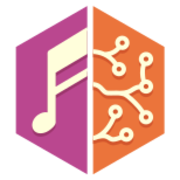User:Colbydray/WelcomeToMusicBrainz

|
MusicBrainz is a community-maintained open source encyclopedia of music information. This means that anyone — including you — can help contribute to the project by adding information about your favorite artists and their works. In 2000, Gracenote took over the free CDDB project and commercialized it, essentially charging users for accessing the very data they themselves contributed. In response, Robert Kaye founded MusicBrainz. The project has since grown rapidly from a one-man operation to an international community of enthusiasts that appreciates both music and music metadata. Along the way, the scope of the project has expanded from its origins as a mere CDDB replacement to the true music encyclopedia MusicBrainz is today. As an encyclopedia and as a community, MusicBrainz exists only to collect as much information about music as we can. We do not discriminate or prefer one "type" of music over another, and we try to collect information about as many different types of music as possible. Whether it is published or unpublished, popular or fringe, western or non-western, human or non-human — we want it all in MusicBrainz. |
The Database
| The MusicBrainz Database stores all of the various pieces of information we collect about music, from artists and their releases to works and their composers, and much more.
Most of the data in the MusicBrainz Database is licensed under CC0, which effectively places the data into the Public Domain. That means that anyone can download the data and use it in any way they want. The remaining data is released under the Creative Commons Attribution-NonCommercial-ShareAlike 3.0 license. All our data is available for commercial licensing. If you are interested in licensing this data for commercial use, please contact us.
|
What can I do with MusicBrainz?
| If you have a digital music collection, MusicBrainz Picard will help you tag your files.
If you are a developer, our developer resources will help you in making use of our data. If you are a commercial user, our live data feed will provide your local database with replication packets to keep it in sync. |
Who uses MusicBrainz?
| Your digital music service | Spotify, YouTube, Google Play, Amazon, 7digital, MusixMatch, 8Tracks, and more use MusicBrainz data to improve on the data they get from labels. |
| Your radio station | BBC uses MusicBrainz extensively for anything related to music. Several other radio stations also use MusicBrainz data either to improve their internal database or to simply replace it. |
| Your fans | may be using a MusicBrainz powered tagger such as Picard or beets to tag music of yours they have bought with additional metadata or play your music using a MusicBrainz aware music player (e.g., foobar2000 or VLC) or media center (e.g., Kodi). A non-exhaustive list of applications that utilise MusicBrainz data to some degree can be seen at MusicBrainz Enabled Applications. |
| Your search engine | Google is using MusicBrainz for its "OneBox" when you search for musical artists and WolframAlpha is using MusicBrainz to answer music related questions. |
| researchers and scientists | MusicBrainz data is being used for research by students and scientists at Universitat Pompeu Fabra (Barcelona, Spain), Queen Mary University of London (England, UK), and many other institutions around the world. |

|
MusicBrainz is operated by the MetaBrainz Foundation, a California based 501(c)(3) tax-exempt non-profit corporation dedicated to keeping MusicBrainz free and open source.
If you feel that MusicBrainz is a worthwhile effort, please consider donating to help support further growth and development. |